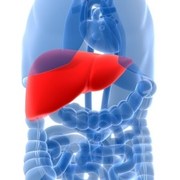 iStockphoto/Thinkstock
iStockphoto/Thinkstock
If you weren’t aware of the recent Hepatitis Awareness Month in the United States, that's okay. You may however have heard about the Centers for Disease Control and Prevention's proposed guideline that all baby boomers undergo testing at least once for hepatitis C.
The CDC released its draft of the recommendation in mid-May and is accepting public comment until June 8, 2012.
Why the buzz about hepatitis? The CDC says that hepatitis is a "hidden epidemic," with scores of Americans carrying the virus without knowing it. Chronic hepatitis often can show no symptoms until serious liver damage has been done.
Earlier this year, the CDC released a study that found, for the last few years, hepatitis C has been killing more Americans than HIV, the virus that causes AIDS.
As part of its push for testing, the CDC has launched a national education campaign called "Know More Hepatitis." The website sheds light on the three most common types of viral hepatitis -- hepatitis A, hepatitis B and hepatitis C -- as well as risk factors, lifestyle changes, symptoms and treatments.
An inflammation of the liver, hepatitis is most often caused by one of several viruses. The B and C varieties can become long-term infections, sometimes leading to scarring of the liver (cirrhosis) and even liver cancer. The CDC says that at least half of new cases of liver cancer are from chronic hepatitis C.
As a baby boomer, I was curious about my risk for hepatitis and took the five-minute Hepatitis Risk Assessment, an online questionnaire from the CDC.
The questions, such as "Have you ever injected drugs, even if just once?" and queries about your history of medical conditions, are based on the CDC's guidelines for testing and vaccination.
Thanks to my relatively sedate college life despite attending a so-called party school, I am not at risk for hepatitis C.
Interestingly, though, the assessment quiz recommended that I receive a blood test for hepatitis B, simply because one of my parents was born in a certain region of the world where hepatitis B is very common.
The assessment noted that the virus could have been passed on to me at birth or during early childhood.
As for hepatitis C, though, baby boomers are at risk when you consider the decades of their youth -- the 60s, 70s and 80s -- as being a time of widespread casual drug use through injections. Sharing tainted needles is a primary means of passing on the virus.
Also, blood transfusions were a risk factor in that era. It's only since 1992 that blood donations in the United States have been screened for hepatitis C.
As the CDC tries to build momentum for hepatitis testing among baby boomers, it uses this chilling statistic: More than 3 million Americans have chronic hepatitis C, and up to 75 percent don't know it.
Curious about your risk for viral hepatitis? The quiz is at http://www.cdc.gov/Hepatitis/riskassessment/
Sources:
"Hepatitis C killing more Americans than HIV." Reuters Health on EmpowHER. Web. 28 May 2012.
https://www.empowher.com/hepatitis-c/content/refile-hepatitis-c-killing-more-americans-hiv
"Hepatitis C Basics." Centers for Disease Control and Prevention Know More Hepatitis Campaign. Web. 28 May 2012.
http://www.cdc.gov/knowmorehepatitis
"Hepatitis Awareness." Centers for Disease Control and Prevention Features. Web. 28 May 2012.
http://www.cdc.gov/Features/HepatitisAwareness
"All baby boomers should get hepatitis C test: CDC." Reuters Health on EmpowHER. Web. 28 May 2012.
https://www.empowher.com/hepatitis-c/content/all-baby-boomers-should-get-hepatitis-c-test-cdc
Reviewed May 29, 2012
by Michele Blacksberg RN
Edited by Jody Smith





Add a CommentComments
There are no comments yet. Be the first one and get the conversation started!